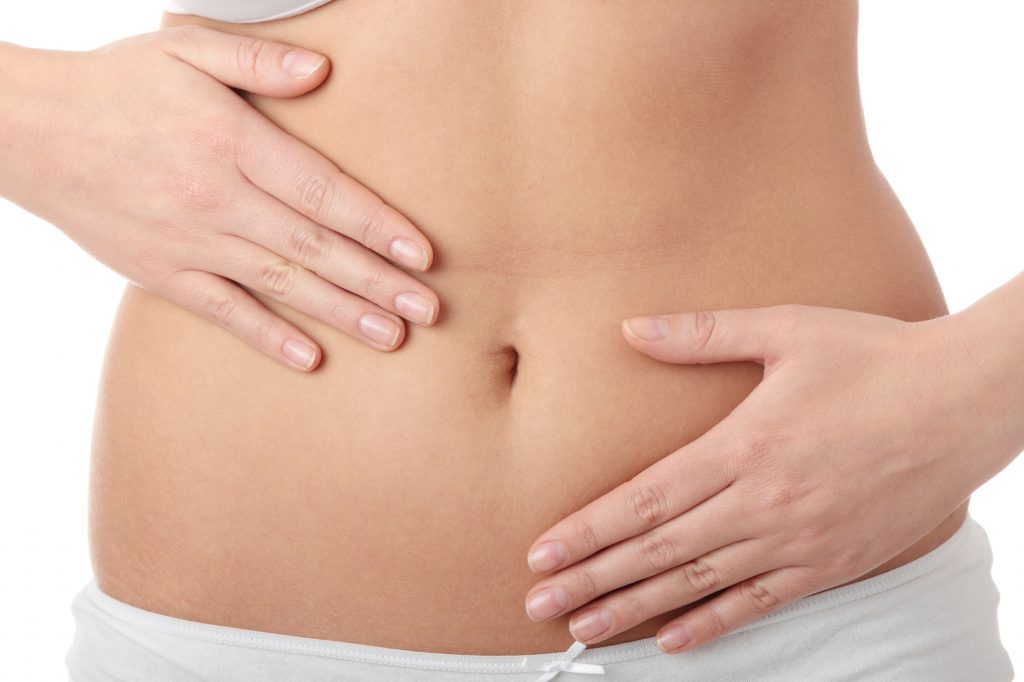
What exactly is SIBO, and what sort of diet may help improve this condition? This is a relatively new phenomenon that has gained attention in the last few years.
SIBO is similar to Inflammational Bowel Syndrome (IBS) except that it occurs in the small intestine. It used to be thought of as rare since the upper GI tract area, unlike the colon area, is normally fairly sterile. Researchers and doctors alike, however, are beginning to acknowledge that SIBO may occur in more people than previously suspected. Some estimates put the number of Americas who suffer from IBS at around 55 million, and many of those with IBS also have SIBO.
As anyone with SIBO knows, the condition can be awkward and sometimes downright debilitating. What’s more, most tests are not very good at detecting it. According to Dr. Allison Siebecker, former medical director for the SIBO Center for Digestive Health at the National University of Natural Medicine (NUNM) and creator of the free educational website, siboinfo.com, the Hydrogen Breath test may be able to give you a good indication if bacteria is growing in your upper GI. This test measures levels of hydrogen and methane gas in the small intestine that are produced by bacteria, not humans.
If higher levels of methane and hydrogen gases are found in a breath test, then one can assume that there is an overgrowth of bacteria and/or yeast.
Symptoms and Risks Associated with SIBO
As you can see, many SIBO symptoms are similar to IBS:
-Bloating and gas
-Nausea and vomiting
-Diarrhea
-Fatigue
-Joint pain
– Skin issues
-Weight Loss
-Depression
The exact cause of SIBO remains more of a mystery, at least to conventional medicine. From a natural healing standpoint, however, eating a Standard American Diet heavy in carbs, processed foods, commercial meats, dairy and sugar as well as not practicing adequate sanitation (including drinking unfiltered water) are the most obvious causes.
Other factors that can contribute to SIBO include:
– high use of pharmaceutical drugs and antibiotics;
-consuming GMO foods;
-having diabetes;
-having diverticulosis;
-having fatty liver disease;
-having certain autoimmune conditions, especially scleroderma;
One reason why it is vital to heal SIBO for overall health is because the small intestine is responsible for the absorption of nutrients from food. When bacteria grow in that region, it can interfere with nutrient assimilation. Lack of food assimilation is the main cause for the gas and bloating often associated with SIBO.
Another unfortunate consequence of SIBO is that it can interfere with proper methylation. Methylation is a complex bio-chemical process that is vital for the proper expression of DNA as well as liver detoxification. I go into depth about how important proper methylation is for reversing breast cancer HERE.
The FODMAP Diet

FODMAP stands for Fermentable Oligosaccharides, Disaccharides, Monosaccharides, and Polyols; a low-FODMAP diet simply eliminates foods that have these substances in them. Low-FODMAP diets, which are designed to eliminate most short-chain carbohydrates, have become popular in recent years for those suffering from SIBO.
The low-FODMAP diet is strict and the list of foods to avoid is long. Here are just a few:
-all wheat products;
-certain vegetables such as Jerusalem artichoke, asparagus, broccoli, brussels sprouts and cabbage;
-dried beans such as chickpeas;
-fruits such as cherries, watermelon and pears;
-some dairy
The low-FODMAP diet was created by Dr. Peter Gibson and his team at Monash University in Melbourne, Australia in 2014, and a few studies to date have indicated that it can be quite effective for curbing SIBO. A report published in the journal Gastroenterology by Professor Gibson and his team found that 68-76% of those who were on the diet saw significant improvement in both SIBO and IBS symptoms.
There are some factors you should be aware of though. Because the diet is meant to eliminate foods that could potentially create bacteria of any kind in the digestive tract, your body may not be getting enough healthy bacteria as a result. In addition, following the low-FODMAP diet can also deprive you of many nutrient-rich foods. For this reason, experts have advised that small amounts of fermented and probiotic foods be introduced back in to the diet as soon as possible. And even the diet’s creators suggest that a low-FODMAP diet may be detrimental in the long term.
Other doctors also suggest the use of herbal antibiotics such as garlic, berberine and oregano to destroy the pathogens in the small intestine.
The Main Take-Away about SIBO and FODMAP
Having SIBO can be a blow to immune function in general, since 80 percent of our immune cells are produced there. Following a low-FODMAP diet for SIBO for a limited time may give your upper GI the break it needs to lower inflammation and restore an increased sterile environment in the small intestine. In most cases, however, SIBO should be seen as a symptom, and not the root cause, of disease. For long-term healing, understand and follow all suggestions outlined in The 7 Essentials™ System. This will give you the most benefit on your healthy breast journey now and into the future.
